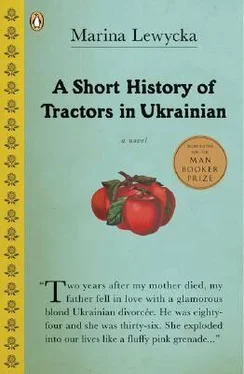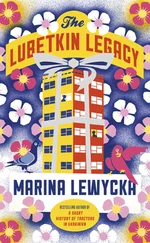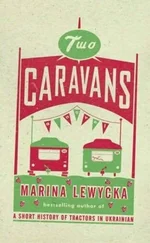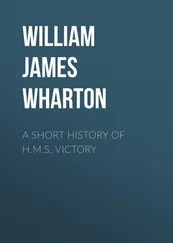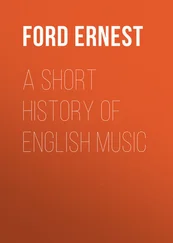That the main purpose of the marriage was not to secure her entry or stay in the UK.
That they have met.
That they intend to live permanently together as husband and wife.
That they can support and accommodate themselves without claiming Public Funds.
The main problem is that the Home Office (or an Embassy if she applies after leaving die United Kingdom) is likely to believe mat, because of die age difference, and because die marriage took place shortly before she had to leave die UK, die main purpose of die marriage is simply for immigration.
I forward the letter to my father.
The solicitor also tells me that the chances of success would be measurably improved should the marriage last for five years, or should there be a child of the marriage. I do not tell my father this.
Two. Mother’s little legacy
My mother had a pantry under the stairs stocked from floor to ceiling with tins of fish, meat, tomatoes, fruit, vegetables and puddings, packets of sugar (granulated, caster, icing and Demerara), flour (plain, self-raising and wholemeal), rice (pudding and long-grain), pasta (macaroni, twirls and vermicelli), lentils, buckwheat, split peas, oatmeal, bottles of oil (vegetable, sunflower and olive), pickles (tomato, cucumber, beetroot), boxes of cereals (mainly Shredded Wheat), packets of biscuits (mainly chocolate digestives) and slabs of chocolate. On the floor, in bottles and demi-johns, were gallons of a thick, mauve liquor made from plums, brown sugar and cloves, a glass of which was guaranteed to render even the most hardened alcoholic (and there were plenty of those in the Ukrainian community) comatose for up to three hours.
Upstairs under the beds in sliding boxes were kept preserves (mainly plum) and jars of home-made jam (plum, strawberry, raspberry, blackcurrant and quince in all combinations). In the potting-sheds and garage, cardboard fruit-boxes were stacked with the latest crop of apples, Bramleys, Beauty of Bath and Grieves, all separately wrapped in newspaper, exuding their fruity perfume. By next spring, their skins would be waxy, and the fruit inside shrivelled, but they were still good for Apfelstrudel and Blini. (The windfalls and damaged fruit had been picked out, cut up, and stewed as they fell.) Nets of carrots and potatoes, still preserved in their coat of clayey soil, bundles of onions and garlic, hung in the cool dark of the outhouse.
When my parents bought a freezer, in 1979, the peas, beans, asparagus and soft fruits soon piled up in plastic ice-cream tubs, each one labelled, dated and rotated. Even dill and parsley were rolled in little plastic bundles and stored away for use, so that there was no longer any season of the year when there was scarcity.
When I teased her about these supplies, enough to feed an army, she would wag her finger at me and say, “It’s in case your Tony Benn ever comes to power.”
My mother had known ideology, and she had known hunger. When she was twenty-one, Stalin had discovered he could use famine as a political weapon against the Ukrainian kulaks. She knew-and this knowledge never left her throughout her fifty years of life in England, and then seeped from her into the hearts of her children-she knew for certain that behind the piled-high shelves and abundantly stocked counters of Tesco and the Co-op, hunger still prowls with his skeletal frame and gaping eyes, waiting to grab you the moment you are off your guard. Waiting to grab you and shove you on a train, or on to a cart, or into that crowd of running fleeing people, and send you off on another journey where the destination is always death.
The only way to outwit hunger is to save and accumulate, so that there is always something tucked away, a little something to buy him off with. My mother acquired an extraordinary passion and skill of thrift. She would walk half a mile down the High Street to save a penny off a bag of sugar. She never bought what she could make herself. My sister and I suffered humiliation in home-made dresses stitched up from market remnants. We were forced to endure traditional recipes and home-baking when we craved junk food and white sliced bread. What she couldn’t make had to be bought second-hand. Shoes, coats, household things-someone else had always had them first, had chosen them, used them, then discarded them. If you had to get it new, it had to be the cheapest money could buy, preferably reduced or a bargain. Fruit that was on the turn, tins that were dented, patterns that were out of date, last year’s style. It didn’t matter-we weren’t proud, we weren’t some foolish types who waste money for the sake of appearances, Mother said, when every cultured person knows that what really matters is what’s inside.
My father lived in a different world. He went to work every day as a draughtsman, in a tractor factory in Doncaster. He earned his wage, bought the things the other men at work bought-new clothes (what’s wrong with that shirt? I could have mended it), a camera (who needs camera?), a record player and vinyl discs (such extravagance!), books (and so many good books in public library), DIY tools (for making crazy things in house), furniture (could get same cheaper in the Co-op), a new motor-bike (drives like a madman). Every week, he gave my mother a fixed, not ungenerous amount for housekeeping, and spent the rest.
So it was that after fifty years of saving, preserving, baking, and making, my mother had accumulated a small nest-egg of several thousand pounds from the money my father gave her every week. This was her poke in the eye to hunger, her comfy safe feeling in the night, her gift of safety to her children in case hunger ever came for us. But what should have been a gift became a curse, for, to our shame, my sister and I squabbled about how her little legacy should be divided.
After our stand-off at the funeral, my sister and I bombarded each other with hate-filled letters and teemed venom down telephone wires. Once it started, there was no stopping it.
She phoned me late one evening, when Anna was in bed, and Mike was out. She wanted me to countersign to release some money for one of her daughters who was buying a flat. I let the phone ring nine times before I picked it up, because I knew it was her. Leave it! Leave it! said a sensible voice in my head. But in the end I picked it up, and all the hurtful things we had never said before came tumbling out. And once they were said, they couldn’t be unsaid.
“You bullied and tricked her into signing that codicil, Vera. You stole her locket.” (Is this really me, saying such horrible things to my sister?) “Mother loved us both equally. She wanted us to share what she left behind.”
“Now you’re being ridiculous.” Her voice snaps like ice. “She could only give the locket to one of us. She gave it to me. Because I was there when she needed me. I was always there when she needed me. And you-the favoured one, the little darling-you let her down in the end.” (Ouch! How can she say this to me, her baby sister?) “As I knew you would.”
We both subscribe to the best-defence-is-attack school of diplomacy.
“Mother loved me. She was terrified of you, Vera. Yes, we were all terrified of you-your sarcasm, your temper. You bossed me around for years. But you can’t boss me any more.” Saying it should make me feel grown up, but it doesn’t. It makes me feel four years old again.
“You just disappeared off the scene, as you’ve done all your life, Nadezhda. Playing at politics, playing your pathetic little games, being so clever and putting the world to rights, while other people get on with the real hard work. You just sat back and left it all to me.”
“You just barged in and took over.”
“Someone had to take charge, and it obviously wasn’t going to be you. You didn’t have time for Mother. Oh no, you were too busy with your fabulous career.”
Читать дальше
